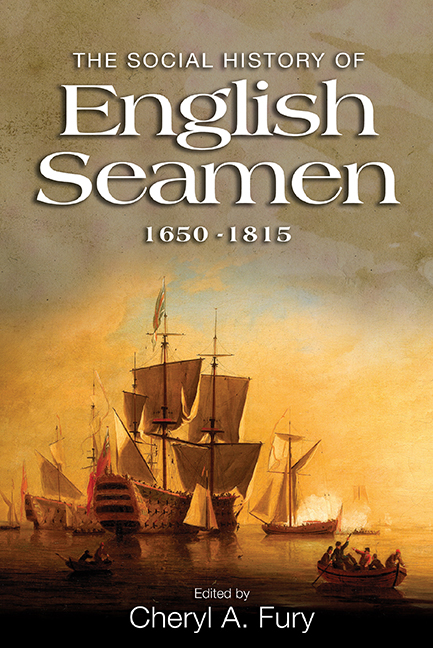Book contents
- Frontmatter
- Dedication
- Epigraph
- Contents
- List of illustrations
- List of contributors
- List of abbreviations
- Introduction
- 1 The Development of Sea Power, 1649–1815
- 2 Naval Seamen, 1650–1700
- 3 Officers and Men of the Navy, 1660–1815
- 4 The Impact of Warfare on Naval Wives and Women
- 5 Officers, Shipboard Boys and Courts Martial for Sodomy and Indecency in the Georgian Navy
- 6 Health Provision in the Royal Navy, 1650–1815
- 7 The Origins and Careers of English Merchant Seamen in the Late Seventeenth and Early Eighteenth Centuries
- 8 Private Enterprise, Public Policy and the Development of Britain's Seafaring Workforce, 1650–1815
- 9 Jack Tar's Food: Masculine Self-fashioning in the Age of Sail
- 10 Pirates, Privateers and Buccaneers: The Changing Face of English Piracy from the 1650s to the 1720s
- Conclusion
- Bibliography
- Index
Conclusion
Published online by Cambridge University Press: 11 August 2017
- Frontmatter
- Dedication
- Epigraph
- Contents
- List of illustrations
- List of contributors
- List of abbreviations
- Introduction
- 1 The Development of Sea Power, 1649–1815
- 2 Naval Seamen, 1650–1700
- 3 Officers and Men of the Navy, 1660–1815
- 4 The Impact of Warfare on Naval Wives and Women
- 5 Officers, Shipboard Boys and Courts Martial for Sodomy and Indecency in the Georgian Navy
- 6 Health Provision in the Royal Navy, 1650–1815
- 7 The Origins and Careers of English Merchant Seamen in the Late Seventeenth and Early Eighteenth Centuries
- 8 Private Enterprise, Public Policy and the Development of Britain's Seafaring Workforce, 1650–1815
- 9 Jack Tar's Food: Masculine Self-fashioning in the Age of Sail
- 10 Pirates, Privateers and Buccaneers: The Changing Face of English Piracy from the 1650s to the 1720s
- Conclusion
- Bibliography
- Index
Summary
The guiding principle for many social historians of the English/British maritime community is that the countless works that focus almost exclusively on those at the top of the maritime hierarchy – the Francis Drakes and Horatio Nelsons – are only part of the story. For those of us who are more comfortable rubbing shoulders with the swabbers than the admirals, it is gratifying just how many heretofore nameless men we can retrieve from the records. It is normally much easier to track down men of higher ranks which is why our knowledge has always been slanted in their favour. Nevertheless, it is possible to produce more balanced analyses of the men who served in various sectors of the seafaring labour force, whether they did so at the top, in the middle or lower down the shipboard hierarchy.
Now that both volumes are completed, it is useful to see how the men of the merchant marine, the navy, privateers and pirates fared over the entire period 1485 to 1815. In terms of health care, aid to naval veterans, shipboard diet and hygiene, there were gradual improvements during the early modern era. However, it is remarkable how enduring many of the challenges were in the English maritime community. A number of the struggles of Tudor-Stuart seamen still persisted centuries later – issues such as the quantity and quality of their provisions, the amount and manner of the payment of their wages, the state overriding their freedoms, lack of regulated training, manning issues, the threat posed by various diseases, and the challenges of being part of a maritime family. Although England and Britain changed during the early modern period, there was much about seafaring and seafarers’ existence that did not, despite the passage of time.
It is evident that Britain's growing empire and trade owed much to its blue water policy. Seamen's vital role was recognized, and increasingly, the state took responsibility for its veterans. This slow development began in the late Elizabethan era as the Crown begrudgingly bestowed pensions on a small number of needy individuals who had served in its naval campaigns.
- Type
- Chapter
- Information
- The Social History of English Seamen, 1650-1815 , pp. 231 - 236Publisher: Boydell & BrewerPrint publication year: 2017



